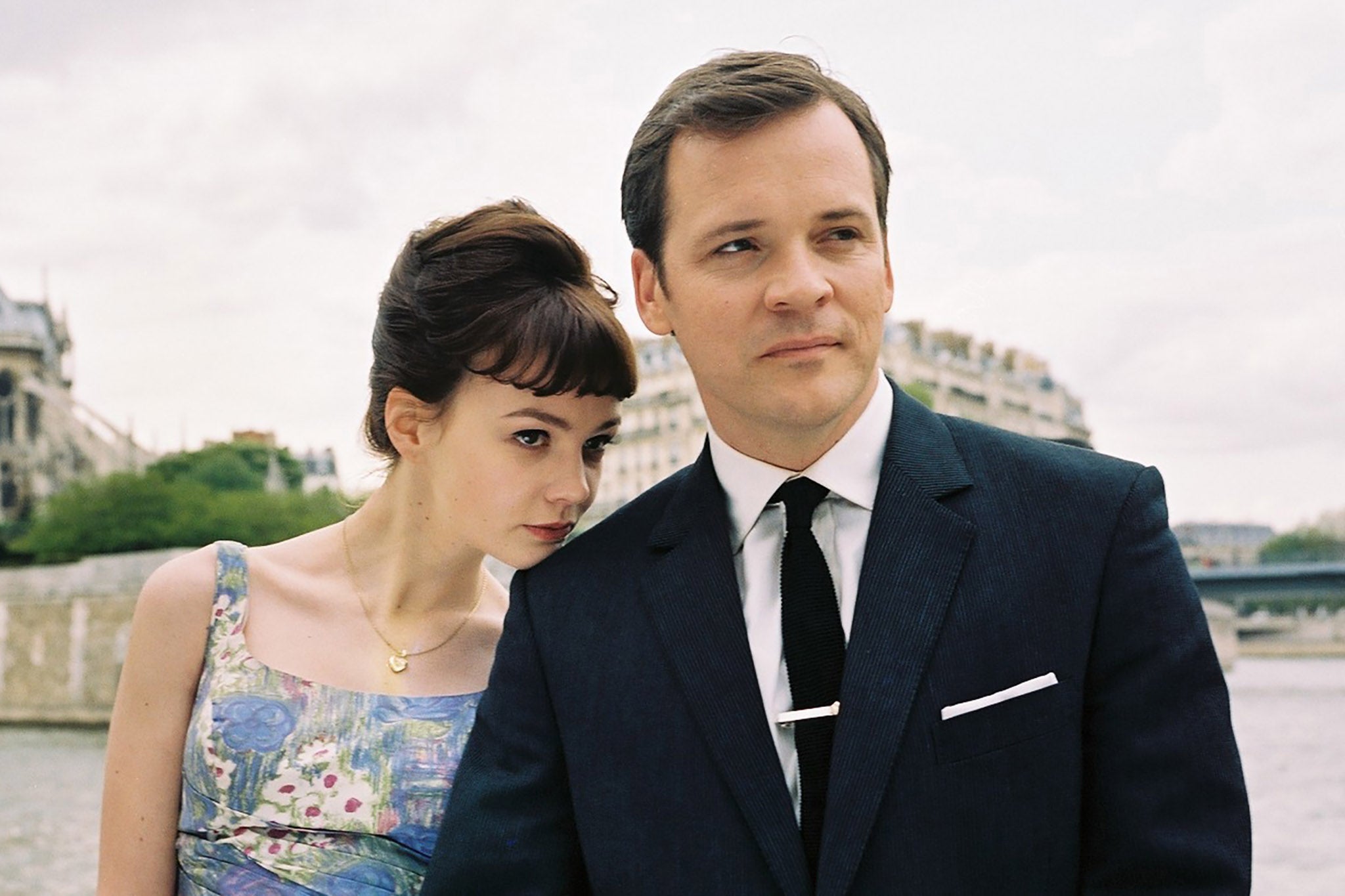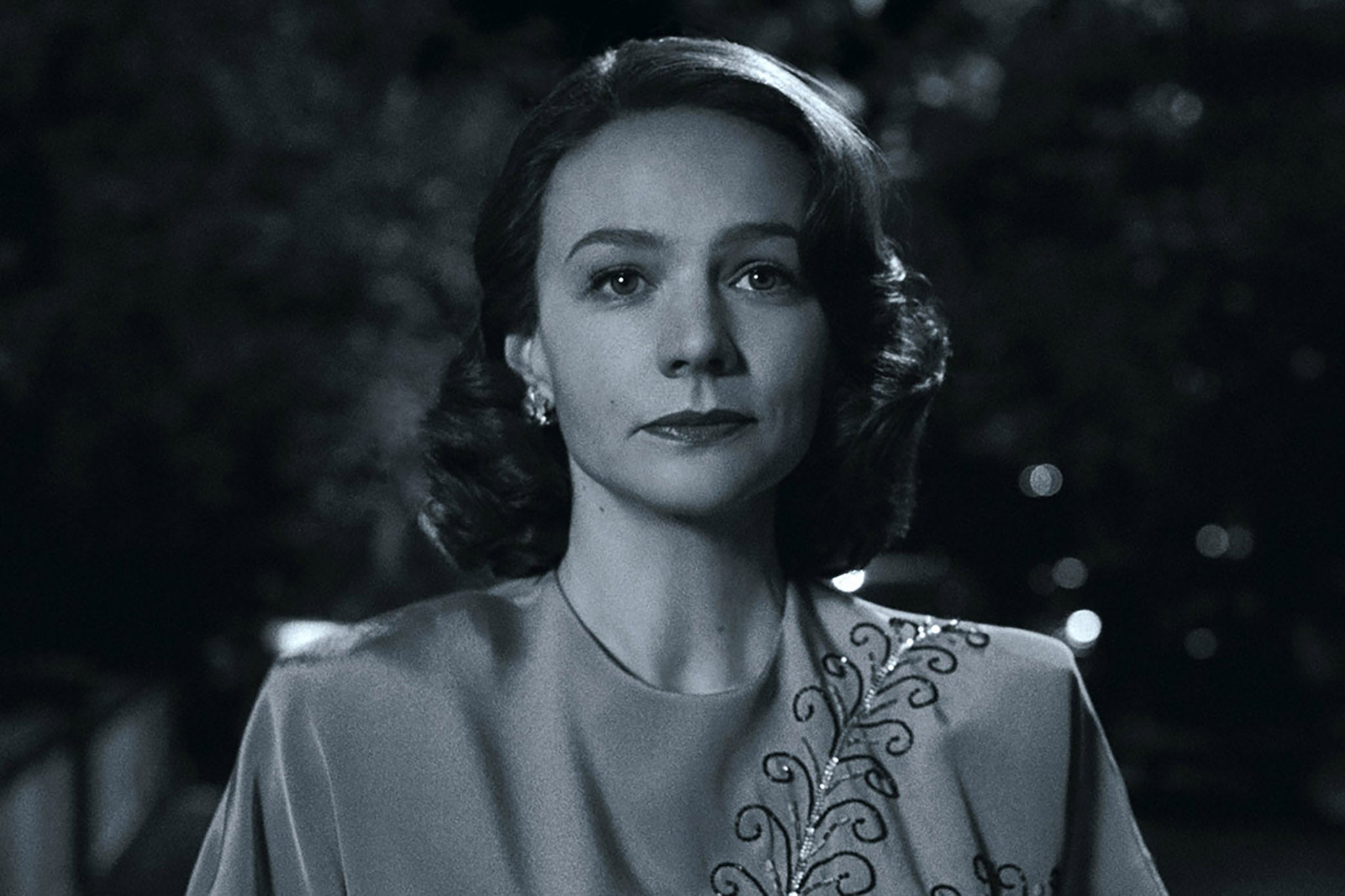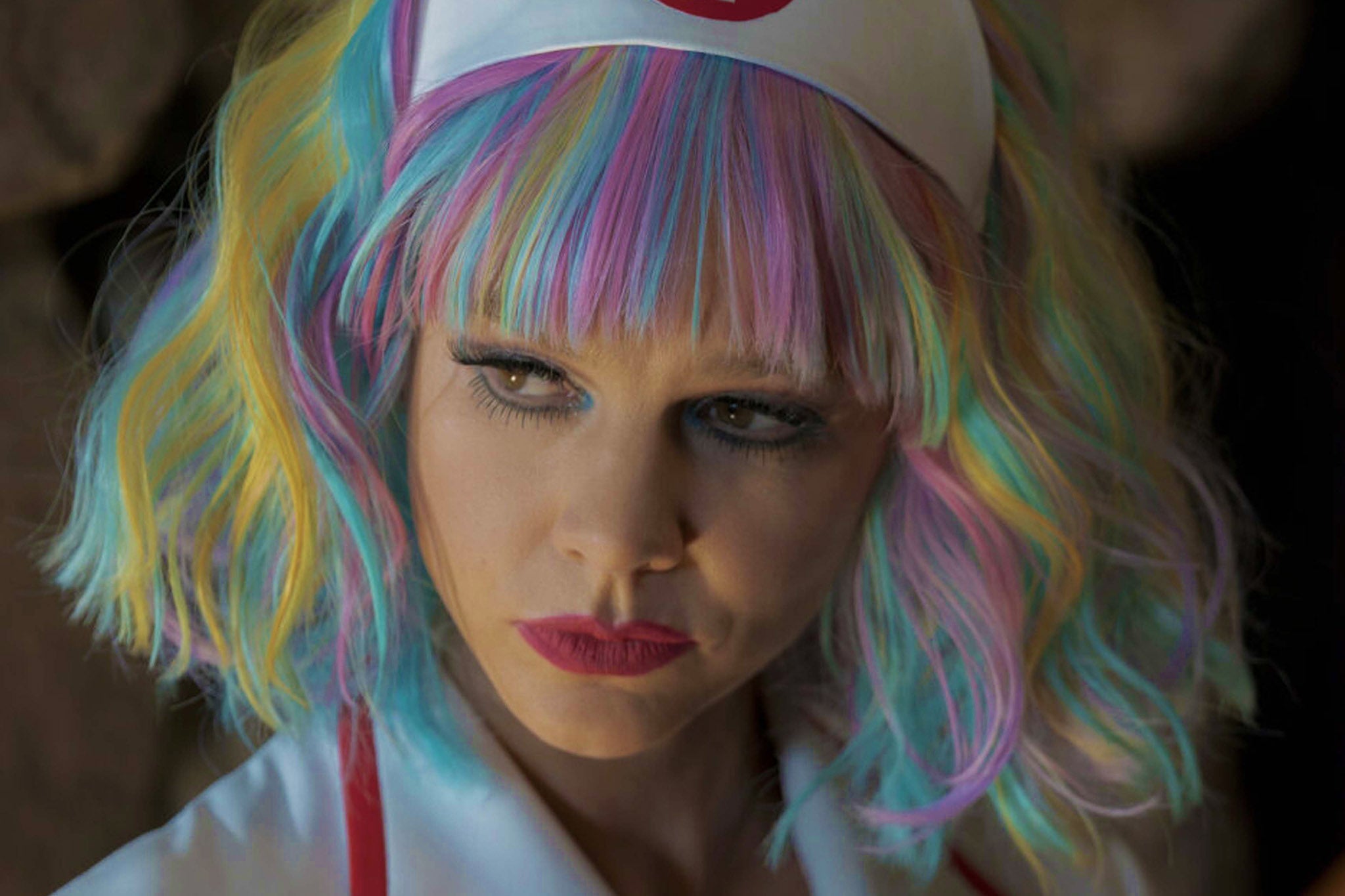Carey Mulligan is the leading English star of her generation – Maestro confirms it
Like Helen Mirren and Maggie Smith before her, the ‘Promising Young Woman’ star is endlessly adaptable, capable of working on stage in a Chekhov production one day and appearing in a blockbuster the next; of playing either monarch or femme fatale. So why the lack of fuss about her latest Oscar nod, asks Geoffrey Macnab

Have the Oscars started taking Carey Mulligan for granted? It’s a measure of how highly the British actor is regarded that her latest nomination – her third – has been met with so little fuss. No one is expecting her to win Best Actress on Sunday night, for her performance as Felicia, Leonard Bernstein’s glamorous, long-suffering South American wife, in Maestro. She is a 50-1 outsider with the bookies.
Nonetheless, such long odds arguably say more about the type of character she is playing than the quality of her performance. Next to Emma Stone’s commedia dell’arte pyrotechnics in Poor Things or Lily Gladstone’s saturnine turn as Mollie Burkhart, the wealthy Osage woman whose family are being killed off in Killers of the Flower Moon, Mulligan’s upper-middle-class Manhattan socialite seems the picture of restraint. It’s not a showy role but one defined by quiet emotional power. Mulligan captures superbly Felicia’s fieriness, jealousy and fatalism as well as her devotion to her brilliant but unreliable composer husband (played by Bradley Cooper, also directing). In one memorable scene, she spots him with a male lover at the end of a corridor. She turns her back and doesn’t say much (“fix your hair, you’re getting sloppy”) but audiences know immediately how wounded she is feeling. Maestro is a biopic and a love story, and Mulligan gives it its heart.
Her very British self-deprecation hasn’t helped her cause either. There doesn’t seem to have been much of an awards campaign behind her. It’s as if the publicists have decided in advance that she isn’t going to beat Gladstone or Stone so they may as well keep their powder dry for next time. But there’s little doubt that there will be a next time. Even if she is overlooked, Mulligan is fast establishing herself as the leading English female star of her generation. In her late 30s, she is already the natural successor to such formidable figures from an earlier generation as Helen Mirren, Judi Dench and Maggie Smith. She has their poise and presence. Like them, she is endlessly adaptable, capable of working on stage in a Chekhov production one day and appearing in a blockbuster the next; of playing either monarch or femme fatale.
Mulligan’s inexorable rise is all the more impressive when you consider the entirely unprepossessing start to her acting career. She didn’t even go to drama school – having tried and failed get in. When she wrote a fan letter to Downton Abbey’s Julian Fellowes soliciting advice on how to make it as an actor, he suggested sardonically she “marry well”. (She would eventually marry her childhood pen pal, banjo-rock musician Marcus Mumford – but only after already finding success on screen.) Two decades ago, a sceptic may have looked at Mulligan and seen just another not very promising young English woman with stars in her eyes.
“I get why my parents were a bit nervous about the whole thing,” she said, reminiscing about her choice of profession to the Backstage podcast in 2021. “I’ve had so many friends and colleagues who are extraordinary actors but just don’t happen to be in the right place at the right time and get that one job that leads to another job.”
By her own account, Mulligan’s career was a matter of fortunate breaks and sliding-door moments. Profiles never forget to mention the rejections, the months she worked in a pub, her time as a runner at Ealing Studios, and those bit parts in TV shows like Marple and Waking the Dead. She makes it seem that she simply lucked out. Of course, that’s not how her collaborators see it at all. You don’t sustain a career like hers for 20 years, the array of diverse roles in films including Drive (2011), Shame (2011), Inside Llewyn Davis (2013), Suffragette (2015), Wildlife (2018), and The Dig (2021) unless you have both an uncanny, chameleon-like talent and ruthless determination.

Finola Dwyer produced Mulligan’s breakthrough effort, An Education (2009) alongside her partner Amanda Posey, and has very vivid memories of encountering Mulligan for the first time. The movie is based on journalist Lynn Barber’s memoir dealing with her affair as a schoolgirl with a much older man.
“When [screenwriter] Nick Hornby came across Lynn Barber’s eight-page essay in Granta and gave it to Amanda and I, we just thought it is such a universal story. Every female has an inappropriate older man story while they were at school,” Dwyer tells me.
An Education was cast by Lucy Bevan (who also did the casting for Barbie) and who had already spotted Mulligan’s immense promise. By this stage, Mulligan had appeared in a supporting role in Joe Wright’s Pride & Prejudice (2005) and had various other credits – but hadn’t yet starred in a movie. “We saw a lot of girls ... some girls who were better known. [But] Carey was on our initial shortlist,” Dwyer remembers.

The producers had already cast Peter Sarsgaard as the charming but lecherous older man. Now, they needed someone to play the 16-year-old Jenny Mellor and Mulligan soon began to seem the best choice. Dwyer still has the tape of her read-through with Sarsgaard. “There was absolutely something about her that we all responded to,” she says.
But then, in 2007, original director Beeban Kidron left the project because another of her films was greenlit, and An Education briefly stalled. A few months later, a new director, Lone Scherfig, was recruited. In the intervening period, Mulligan had gone off and appeared in a Royal Court stage production of The Seagull and shot Jim Sheridan’s Brothers (2009). By the time Dwyer saw her again, she seemed even better than at the first read-through.
“She was 22, turned 23, playing a 16-year-old [in An Education],” Dwyer recalls. The precocious actor quickly allayed any worries that she was getting too old for her role. “She absolutely held the character. She had just become more assured…you could see how brilliant she was and how the camera loved her. She is a consummate professional as well. She just gets into, and under, the skin of the character…she has such good comic timing, Carey. She’s a great singer. She can do it all,” Dwyer says.

The financiers remained wary (“they would rather we had cast a name”) but the producers insisted the film wouldn’t work without Mulligan. They knew she was right when they saw her in one key early scene when the teenage schoolgirl is carrying a cello home from school and is caught in the rain. This is the moment Sarsgaard first picks her up in his car. “I remember Peter saying to Carey, ‘How will I know when you’re going to get in the car? Are you going to give me a signal?’ And she was, like, ‘no, I’ll get in when I feel it’s right to get in.’” In other words, Mulligan had the poise and confidence to tell a far more experienced actor exactly how to play the scene.
An Education was a triumph. After a raucous Sundance premiere, critics heaped praise on Mulligan. “The notion of the single performance that creates a star overnight is surely one of Hollywood’s biggest cliches, but this is one time when you can take it to the bank,” Kenneth Turan wrote in the Los Angeles Times. Soon, Mulligan was acting opposite Leonardo DiCaprio in The Great Gatsby. Directors like Oliver Stone, Steve McQueen and the Coen brothers were all queueing up to work with her.
Look at Mulligan’s recent screen roles and you find a surprising number of secondary characters. In Saltburn, she is in comic groove as an Ab Fab-style hanger on, “poor dear” Pamela, whose world comes crashing down after she is banished from the country house where she had previously been an honoured guest. It’s a poignant and unexpectedly funny performance. You can understand why she wanted to work with writer-director Emerald Fennell again after their runaway success with Promising Young Woman (2020), in which Mulligan excelled as a feminist vigilante. Nonetheless, it isn’t the star at full throttle.

For her new Netflix movie Spaceman, Mulligan was again cast as a beleaguered wife. This time, her husband (played by Adam Sandler) is a Czech astronaut, not a philandering New York composer. While she is pregnant and facing life-changing decisions on Earth, he is thousands of miles away in outer space, communing with a giant spider (voiced by Paul Dano). Even the insect is baffled that Sandler isn’t spending more time with Mulligan. She is fine but it’s a relatively thankless role with little of the depth found in Maestro.
Mulligan may have temporarily sidestepped the spotlight, but she’s always likely to be near the top of any director’s wishlist. “She’s an actor for the ages, a star for the ages,” producer Dwyer insists. “It has been a great pleasure for all of us involved in An Education to see her rise and rise. There is no end to it … I’ve seen Maestro twice and I just think her performance is extraordinary. I can’t wait to see what she does over the next 10 years.” Best Actress Oscar glory will likely elude Mulligan at the weekend, but she’s bound to be back soon on the awards trail. An actor like her can only play second fiddle for so long – at this point, it’s clear she’s a maestro.
‘Spaceman’ and ‘Maestro’ are on Netflix






Join our commenting forum
Join thought-provoking conversations, follow other Independent readers and see their replies
Comments